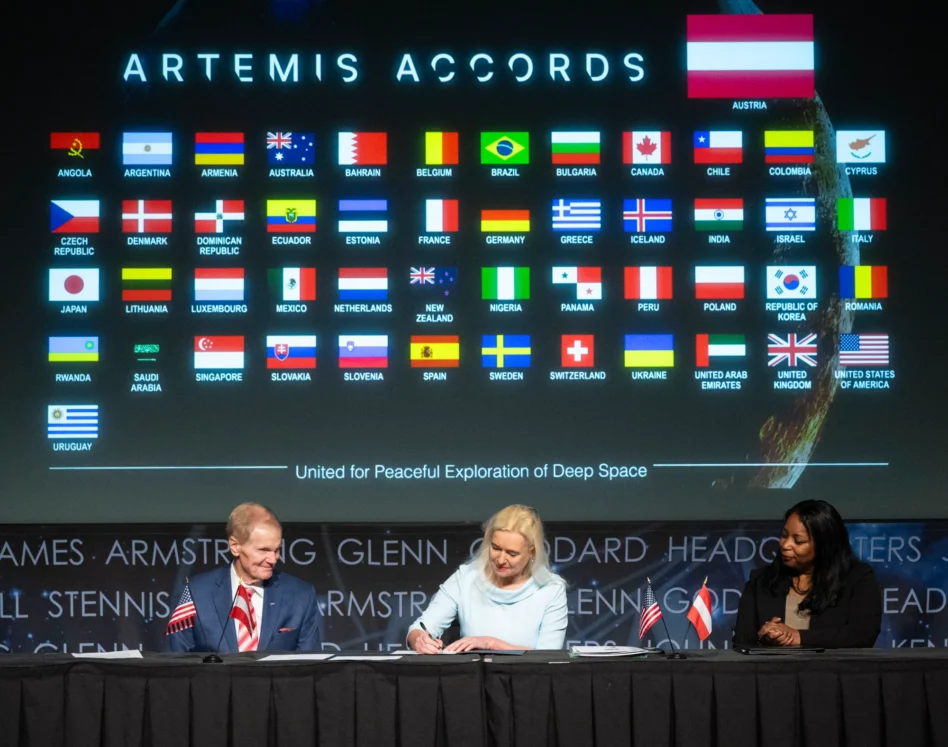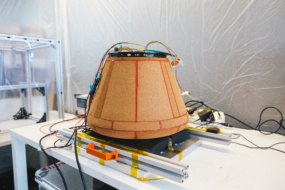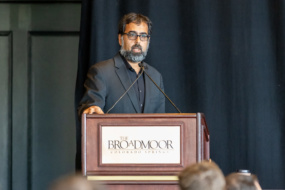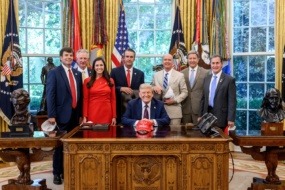More than a quarter of the world’s countries are now part of the Artemis Accords after Panama and Austria signed on in a pair of ceremonies on Wednesday at NASA HQ in Washington.
The Biden administration has helped grow the group of international partners committed to the peaceful and sustainable exploration of space to 50 signatories. But they’re not done yet. NASA Administrator Bill Nelson said to look out for “several more” nations to join over “the next few weeks.”
Teamwork makes the dream work: Following the signing ceremonies, Nelson told reporters that he sees the accords like a relay race, weaving a continuous thread through administrations despite political differences.
He said the Artemis Accords were actually the brainchild of the Obama administration, which handed off the idea to the Trump administration to oversee implementation. The first Trump administration established the accords in 2020 with eight nations, and handed the baton over to the Biden administration shortly after to grow it.
Now, it’s the Trump team’s turn again to keep the momentum going, according to Nelson.
“We will hand the baton off to the new administration and it will continue,” he said.
Empty seat: Even as the list of signatories continues to grow, some major space players—namely Russia and China—have not signed on. But Nelson said he’d love to see both nations sign on eventually.
“The politics on the surface of planet Earth makes it more difficult,” he said. “The fact is that China is very non transparent, very secretive. Most of their space program is their military program, and that’s just the way it is. Hopefully at some point, because they have a great deal of promise in their space program, they will eventually become partners.”




